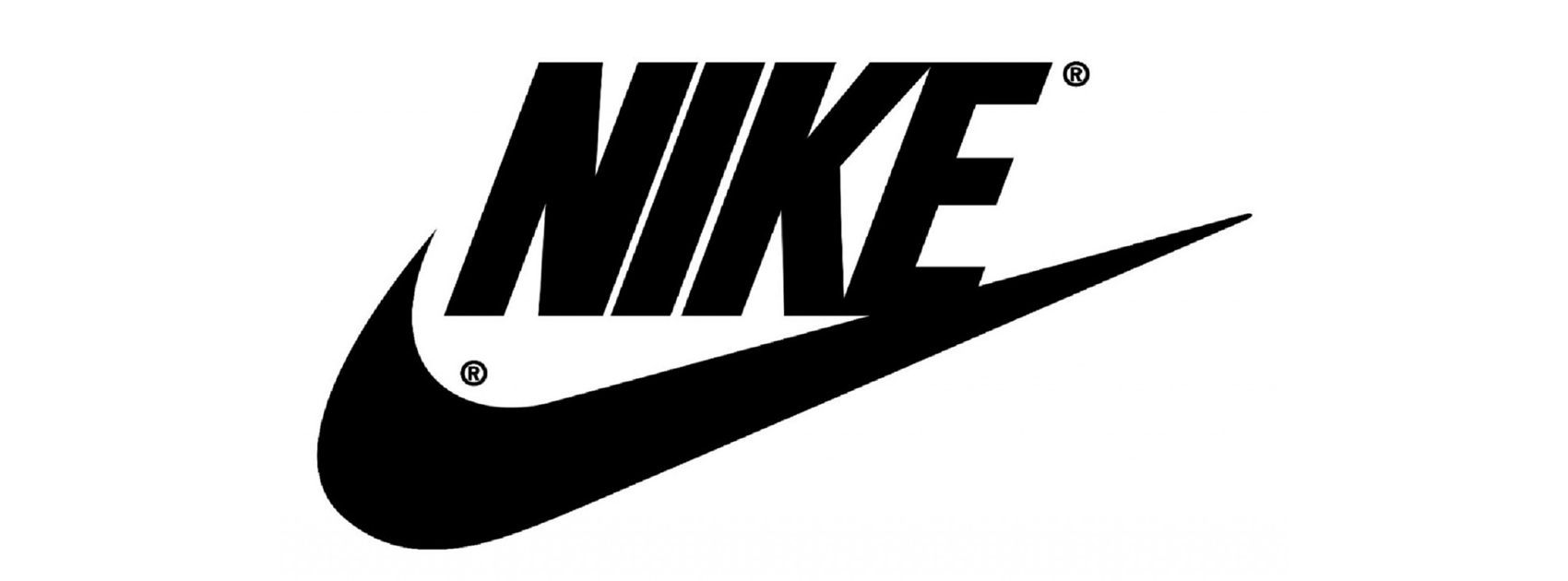Stories
Nike Unknown Facts

Founded by a university track athlete Phil Knight and his coach Bill Bowerman in 1964, Nike Inc., an American multinational corporation, is the world’s largest supplier of athletic shoes and apparel. Here are some interesting and lesser known facts about Nike.
Unknown facts about Nike
1) Nike was started when founder Phil Knight was working on one of his college assignments. Knight worked on a business plan about creating better running shoes with cheap labor, probably from Japan. With the idea, Phil Knight, along with Bill Bowerman, started importing Japanese shoes to America and started selling them to high school students and athletes.

2) The Company was initially named Blue Ribbon Sports and was a distributor of Japanese shoemaker Onitsuka Tiger. After it ended its relationship with Onitsuka Tiger, it was renamed Nike, after the Greek Goddess of Victory. Before choosing the name Nike, the Company was almost named Dimension Six, before the founders changed their mind.

3) Nike’s famous slogan “Just Do It” was inspired by an unusual source. The advertising agency which created the slogan, credited the last words of a convicted murderer Gary Gilmore’s, “Let’s do it,” as the inspiration behind Nike’s world famous tagline.

4) Nike’s logo Swoosh was initially called Stripey. The logo was designed by a University of Portland student for just $ 35. After the Company became successful, the student was given stakes worth $ 640,000 in Nike.

5) In the 1987 advertisement for Nike’s Air Max shoes, the Company used The Beatles’ song Revolution for their campaign. This did not sit well with The Beatles and they sued Nike for $ 15 million.

6) Tinker Hatfield, Nike’s shoe designer and Vice President for Design and Special Projects, also designed the hoverboarding shoes worn by Michael J. Fox’s character Marty McFly in Back to the Future Part II.

7) Nike created and patented a shoe which has an embedded computing device capable of communicating with the wearer’s smartphone.
8) Known for its unique advertising campaigns, Nike has won two Emmy Awards for its commercials in 2000 and 2002 respectively.
Even after 55 years of its founding, Nike still remains one of the top brands in the world, with an annual revenue of $ 36.39 billion. Which of these facts about Nike surprised you the most? Comment below and let us know.
Entrepreneur Stories
Zupee Bolsters Short-Video Play with Vertical TV Acquisition Under INR 40 Cr

Delhi NCR-based gaming startup Zupee has acquired Mumbai-based microdrama platform Vertical TV in a deal valued under INR 40 Cr. This move strengthens Zupee Studio, its short-video arm launched in September 2025, by integrating Vertical TV’s expertise in bite-sized dramas like romance and thrillers.
Facing challenges from India’s 2025 real-money gaming ban, Zupee valued at $1 Bn after raising $120 Mn has pivoted to non-gaming content, including recent layoffs of 40% of its workforce. The acquisition builds on its November 2025 purchase of Australian AI firm Nucanon for interactive storytelling, targeting its 200 Mn+ users with engaging, mobile-first formats.
This deal underscores the rising microdrama trend in India, helping Zupee diversify amid regulatory pressures and compete in the short-video space dominated by quick, shareable content for on-the-go audiences.
Videos
T.N. Seshan: The Fearless Reformer Who Redefined Indian Democracy

T.N. Seshan’s name stands tall in India’s history as the man who transformed the nation’s electoral system with extraordinary courage and integrity. Born in 1932 in Kerala, Seshan grew up with values of discipline, education, and service to the nation — virtues that shaped his illustrious journey. From his early brilliance at Madras Christian College to his advanced studies in public administration at Harvard University, Seshan’s path reflected rare determination and intellect. Joining the Indian Administrative Service in 1955, he built a reputation as a no‑nonsense officer committed to efficiency and honesty, serving in key roles such as Secretary of Defense and overseeing vital national programs.
As the Chief Election Commissioner of India in 1990, T.N. Seshan sparked a new era of electoral integrity. In a system once marred by corruption, violence, and malpractice, Seshan brought order, fear, and respect through his groundbreaking reforms. He introduced voter ID cards, imposed strict spending limits on campaigns, and insisted on transparency at every level of the election process. Despite criticism from political circles that labeled him dictatorial, his relentless pursuit of fairness empowered every citizen to vote fearlessly. Under his leadership, the Election Commission became a symbol of strength and integrity in Indian democracy.
Seshan’s passing in November 2019 marked the end of an era, but his message continues to resonate across generations. Leaders from every corner of the country mourned the loss of the man who restored faith in free and fair elections. His enduring legacy reminds us that true leadership lies not in wielding power, but in serving people with honesty, courage, and conviction. T.N. Seshan’s life remains a timeless inspiration a reminder that democracy thrives only when its citizens are vigilant, responsible, and fearless.
Entrepreneur Stories
Indian Man Quits JPMorgan, Takes 70% Pay Cut to Launch $6 Million Startup

Leaving behind a high-paying job at JPMorgan, an Indian entrepreneur embraced a 70% salary cut to pursue true purpose and passion in the startup world. Disenchanted with what he described as a “robotic” corporate routine, he sought meaningful work that made a real impact. This pivotal decision marked the beginning of his new journey, one focused on value creation rather than titles and corporate perks.
Powered by resilience and fresh perspective, the entrepreneur launched his own startup, prioritizing innovation and hands-on solutions. The road was challenging, but his vision resonated with the market: the startup quickly gained traction and raised $6 million—an impressive acknowledgement of its potential in a competitive landscape. Every hard lesson from early setbacks and bootstrapping paid off in real customer growth and investor confidence.
Today, his journey stands as an inspiring example for professionals seeking authentic success outside the corporate grind. By trading comfort for creative freedom, he grew a venture that solves important problems, generates jobs, and builds wealth beyond just salary. For ambitious founders, his story highlights the power of risk-taking, adaptability, and relentless focus on impact in India’s thriving startup ecosystem.













MM88
November 5, 2025 at 10:40 am
Khám phá thế giới giải trí trực tuyến đỉnh cao tại MM88, nơi mang đến những trải nghiệm cá cược thể thao và casino sống động.
站群程序
November 7, 2025 at 9:59 am
采用高效谷歌站群策略,快速提升网站在搜索引擎中的可见性与权重。谷歌站群
ios超级签
November 11, 2025 at 5:08 am
苹果签名,苹果超级签平台,ios超级签平台ios超级签苹果企业签,苹果超级签,稳定超级签名
MM88
November 15, 2025 at 9:53 am
Với giao diện mượt mà và ưu đãi hấp dẫn, MM88 là lựa chọn lý tưởng cho các tín đồ giải trí trực tuyến.
GO88
November 18, 2025 at 12:06 am
Tham gia cộng đồng game thủ tại Go88 để trải nghiệm các trò chơi bài, poker phổ biến nhất hiện nay.
iwin
November 22, 2025 at 3:19 am
iwin – nền tảng game bài đổi thưởng uy tín, nơi bạn có thể thử vận may và tận hưởng nhiều tựa game hấp
J88
November 23, 2025 at 3:49 pm
Đến với J88, bạn sẽ được trải nghiệm dịch vụ cá cược chuyên nghiệp cùng hàng ngàn sự kiện khuyến mãi độc quyền.
Kuwin
December 1, 2025 at 6:12 am
kuwin sở hữu kho game đa dạng từ slot đến trò chơi bài đổi thưởng, mang đến cho bạn những giây phút giải trí tuyệt vời.
sugar casino auszahlung
December 20, 2025 at 5:04 pm
Willkommensbonus 100% bis zu €100 + 20 FS Karamba bietet österreichischen Spielern ein sicheres und
reguliertes Spielerlebnis mit Fokus auf Fairness, Spielerschutz und klaren Rahmenbedingungen. 100 Freispiele
ohne Einzahlung bei Fruit Vegas Als Karamba VIP jeden Sonntag
Freispiele kassieren Auch im Karamba.com Casino ist der Willkommensbonus längst nicht die einzige Aktion, in deren Genuss ambitionierte Spieler kommen können. Dabei fällt jedoch die deutlich geringere Spielauswahl auf.
Das Karamba Casino bietet ein VIP-Bonusprogramm an, mit dem Spieler Bonuspunkte sammeln können,
die in kostenloses Bonusgeld umgewandelt werden können. Die Freispiele müssen innerhalb von 1 Tag verwendet werden, sonst werden sie vom Konto entfernt.
Der Willkommensbonus muss auch noch innerhalb von 21 Tagen nach Gutschrift auf dem Konto
genutzt werden. Der Willkommensbonus ist auf einen Bonus pro
Haushalt begrenzt und kann nicht in Kombination mit anderen Werbeaktionen verwendet werden.
Im Karamba Casino finden Sie Spiele von einigen der führenden Softwareentwickler,
darunter NextGen Gaming, QuickSpin, Amaya, NeoGames, Cadillac Jack und Bally.
Zum Beispiel gibt es kostenlose Spiele, Einzahlungsboni, Cashback-Angebote,
VIP Live-Turniere und mehr. Das Karamba Casino belohnt seine
Spieler über ein VIP-Programm, das eine Reihe von besonderen Extras
bietet. VIP-Spieler können auch den Sonntags-Freispielbonus nutzen, die dem Konto gleich beim Einloggen gutgeschrieben werden und es gibt auch monatliche Cashback-Boni, die
immer am 3.
References:
https://online-spielhallen.de/sofortige-casino-freispiele-der-schnellste-weg-zum-gluck/
Live Casino Hotel Maryland
December 27, 2025 at 7:46 am
Fidelity Go is an excellent choice for beginner investors who are starting with
a low balance and want to avoid fees while leaving the work of portfolio management to their robo-advisor.
The pricing is a monthly subscription of US $ 1, and the company gives access to other services such as an online bank account,
etc., for an additional fee. Stash offers robo-advisory services with its mobile app.
And you can get access to human advisors for an additional fee.
Vanguard digital advisor is the robo-advisory service from the well-known Vanguard asset management company.
Fidelity Go is the robo-advisory service from the reputed Fidelity group.
Human advisors offer a personal touch and sometimes decades of experience in goal-based investing across global
markets. The world of investment has been changed forever by robo-advisors that offer
professional portfolio management for a fraction of the cost.
Thanks to advanced software, robo-advisors investigate your financial goals and risk
tolerance and create an investment strategy tailored specifically to you.
Offering low-cost, efficient, and accessible financial planning, robo-advisors have become a staple tool
for millions of investors.
References:
https://blackcoin.co/microgaming-casino-bonuses-and-how-they-work/
Imperial Poker rules explained
December 27, 2025 at 8:39 pm
The main focus of this casino is slots (“pokies”) and players can find some of the newest and most
popular online slots launched by Microgaming right in the Casino Mate lobby.
The game variety is impressive, from classic pokies to
modern video slots, and the table games section offers authentic casino experiences.
The welcome bonus package is incredible and really gives new players a great start to
explore all the games available. This gaming platform offers the best game selection I’ve found online, with smooth gameplay and excellent graphics
that make every session enjoyable. Casino Mate represents the pinnacle of online gaming excellence, where traditional
casino excitement meets cutting-edge digital innovation to create
an unparalleled gaming experience for Australian players.
Each provider’s games has been specifically optimized for mobile devices, maintaining the
same high-quality graphics and smooth gameplay that
players expect from our desktop platform.
In the Mate casino review, we cannot fail to note the slot machines that offer a rich selection of bonus
offers and promotions. On this online gambling entertainment portal, every gambler can easily find
a game to their liking. Even though the service is designed mainly for players from Australia, the customer support
service works in several languages of the world.
Casino Mate offers one of the best online customer support services on the web.
References:
https://blackcoin.co/jackpotcitycasino/
joinpartyple.com
December 29, 2025 at 9:31 am
gamble online with paypal
References:
joinpartyple.com
neulbom24.co.kr
December 29, 2025 at 9:42 am
gamble online with paypal
References:
https://neulbom24.co.kr/bbs/board.php?bo_table=free&wr_id=1030
jobzee.co.uk
December 30, 2025 at 2:19 pm
casino with paypal
References:
https://jobzee.co.uk/Company/best-payout-online-casinos-in-the-us-with-highest-rtp-games/
razib.cretechbd.com
December 30, 2025 at 2:38 pm
online pokies paypal
References:
https://razib.cretechbd.com/employer/the-best-australian-payid-gambling-portal/